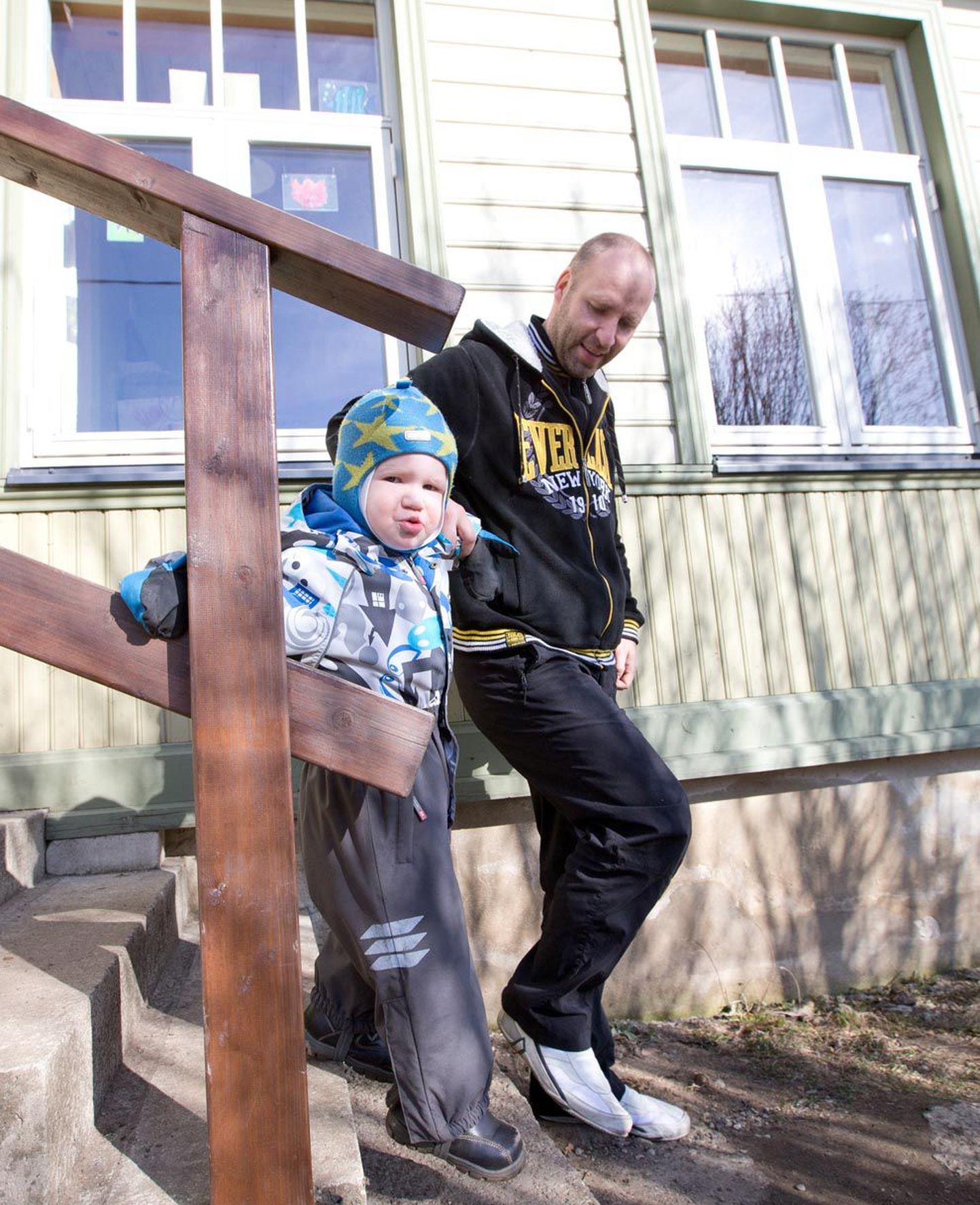
Supreme Court never explained what’s the reasonable waiting time for a place in kindergarten. Even so, they don’t think one can demand it by next morning.

Supreme Court never explained what’s the reasonable waiting time for a place in kindergarten. Even so, they don’t think one can demand it by next morning.
Just recently, Constitutional Review Chamber of the Supreme Court came out with two decisions touching kindergarten waiting lines: on the one hand, they declared a line as such to be a normal phenomenon. On the other hand, «kinder» should get in «gartens» within reasonable time.
The Chamber never specified what a reasonable time would be; therefore, it isn’t at all excluded that in the future, Administrative Law Chamber of the Supreme Court would determine its length.
According to Constitutional Chamber adviser Ulrika Eesmaa, the chamber decides regarding constitutionality of specific norms. Communes distribute kindergarten places according to waiting lines; meanwhile, pursuant to law, a place shall be granted within a reasonable period of time. «So the court concluded that as a kindergarten place is provided within a reasonable period of time, then a waiting line, as a norm, is constitutional.»
Thus, communes and cities may still set kindergarten place applications in a waiting line, but they still have to provide the place in a reasonable time. «The reasonability must still be viewed so that parents could combine work and family life,» added Ms Eesmaa. «I personally think that if the waiting time drags to a year or two, we can no longer talk about parents being able to reasonably combine work and family life.»
Pursuant to law, a commune or city government must provide kindergarten places for all kids aged 1.5 to seven years, whose residence is in the same local government and whose parents so desire.
From time to time, opinions are voiced that kids aged at least three should have an advantage before the younger ones, as with those up to three a parent is able to stay at home. According to Ms Eesmaa, the law is not supportive of that: «It’s irrelevant how long a parent can stay home with the child personally – a parent still cannot go to work if she can’t put the kid in a kindergarten and must stay home with him.»
But what’s a reasonable time? «In my opinion, it is not reasonable when a parent files an application today and tomorrow, or the day after, wants to get his child in the kindergarten. A local government cannot be expected to arrange it so fast,» says Ms Eesmaa.
Something of that order was wished for his son a citizen named R. L. (name known to Postimees – edit), who registered his family in Kiili Commune on September 2nd last year and, the day after, filed an application for a place in kindergarten for his son. Starting September 3rd, R. L. Already put his son in a private kindergarten. When the kindergarten director announced, on September 23rd, that the child would not get a place in academic year 2013–2014, on October 1st already R. L. Sued the commune. He demanded that the commune provide a place in the kindergarten or compensate the costs of having the child in a private kindergarten.
«Now, a new letter came from the lawyer of that person – he wants money again,» said Kiili commune mayor Valeri Kukk. «The sums are four digit sums.» According to Mr Kukk, the commune will probably also have to pay compensation.
Kiili commune pays a hundred euros for day care, and supports private kindergarten by €196 a month. «When a kid goes to private kindergarten, it costs €400–700 a month – thus, we must also pay up the difference after our kindergarten payment and the €196 benefit,» said Mr Kukk.
According to Mr Kukk, the commune kindergarten currently has about a hundred kids in the waiting line. «We have not had problems with inhabitants in the commune who lived here even before and, after the child was born, put him in the waiting line,» claimed Mr Kukk. «Problems and court cases come with the people who moved into the commune, the next day filed applications for kindergarten, and when we couldn’t give it right away, then they sued us the day after.»
By its kindergarten regulation, Kiili commune favours the families who lived in the commune before January 1st of reception in the kindergarten. The commune officials say this is understandable, as the taxes of parents who moved into the commune will only «follow» them starting the next year.
Renee Püvi, inhabitant of Rae commune, however, put his son Trevor in the Vaida kindergarten waiting list a few days after he was born, in spring of 2012. In spite of that, the commune said they could not grant Trevor a kindergarten place starting autumn 2013 – at the end of September that year, the boy turned a year and a half old.
As a replacement, the commune promised the family €128 a month for a child kept at home – or private kindergarten subsidy of €200 a month.
In July last year, Mr Püvi sued the commune government, demanding that his son be provided a place in the municipal kindergarten or else that the family be compensated additional payments for private kindergarten. In the end, administrative court ruled that Rae commune was under obligation to grant Trevor a place in the commune kindergarten.
According to Renee Püvi, it still sadly remains unclear what is considered reasonable time. «Anyone may interpret that as he pleases,» said Mr Püvi. A week ago, he finally learned that starting September Trevor does have a place in the commune kindergarten. «I also plan to claim, from the commune, the so-called extra expenses at the private kindergarten – I have kept all the receipts.»
According to Rae commune deputy mayor Jens Vendel, the commune this yea builds two extra kindergartens – so the overly long waiting lines should be a thing of the past.